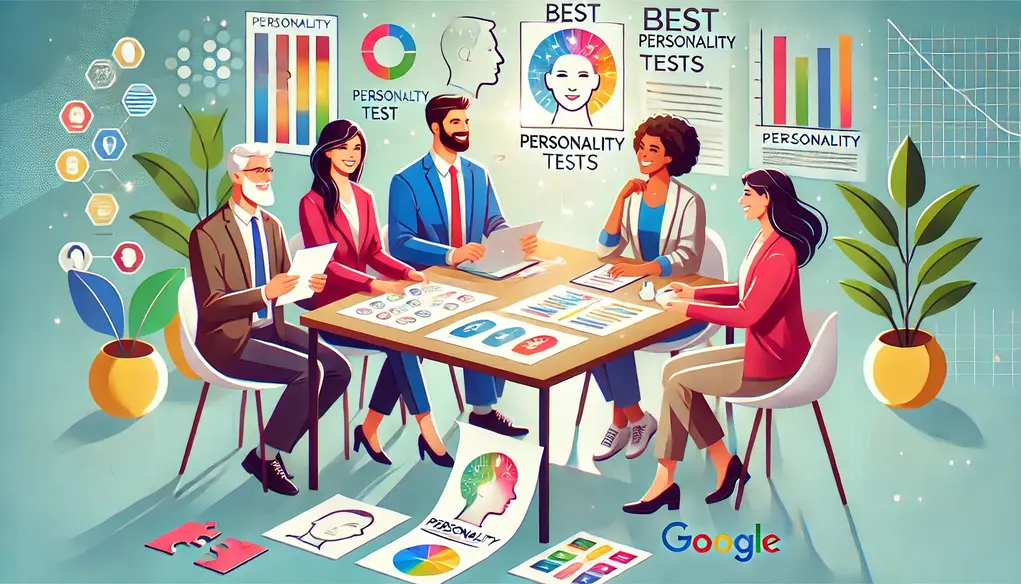Companies nowadays use personality assessments to help them understand employees beyond resumes and interviews. Roughly 60% of big businesses use them today to help make hiring decisions. However, which types of roles do personality assessments bring the most value to, and why are they vital for those positions?
Personality tests can show a person’s communication style, motivational aspects, and adaptability. This becomes critical, especially in jobs that involve teamwork and the ability to handle stress or management. In this way, employers can assess candidates’ performance, suitability for the team, and fit for their desired set of demands.
In this blog, we will talk about what job roles benefit the most from personality tests. Furthermore, discuss whether a personality assessment can give you an ideal person to fit your company’s roles.
Top Job Roles that Benefit from Personality Assessments
Here are the top roles that benefit from personality assessments;
1. Leadership and Management Roles
Personality tests are necessary for leadership positions. Managers must handle complex team dynamics, resolve disputes, and motivate the teams. Personality tests help identify leaders by showing how the candidate can take on such responsibilities. They can reveal qualities such as determination, resilience, and emotional intelligence.
Additionally, personality assessment can show a leader’s potential to adapt to a management position. For example, openness to experience often enables leaders to innovate more. These traits help in selecting candidates who can guide others through change.
2. Customer Service and Sales Roles
Customer service and selling are considered personality-intensive jobs. Employees will deal with clients, solve problems, and stay calm while dealing with all the queries. Customer service qualities mainly include patience, empathy, and resilience. Assessments can identify these characteristics in people, thus improving customer satisfaction.
Conversely, certain personality features, such as passion and persuasiveness, are assets in sales positions. Salespeople have to be outgoing and charismatic when dealing with clients. These tests give companies the chance to select talented people for customer-contact jobs.
3. Creative and Collaborative Roles
Personality profiles also help creative positions like design and marketing. These areas require open-mindedness, adaptability, and high emotional intelligence. Personality profiles tend to show candidates who collaborate well and can contribute innovative ideas.
For instance, a high score on curiosity would indicate a candidate who is comfortable brainstorming and taking creative risks. High-scoring individuals on friendliness may work well in teams to help foster a supportive and cooperative environment. Businesses can match these traits with creative positions to build even more creative teams.
Why Personality Assessments Have Become Essential in Hiring?
Now, let’s check out why these personality tests have become so essential in hiring.
1. Prediction of Job Performance
Personality tests help the employer better understand how the applicant will conduct himself or herself at work. Instead of guessing, they can make a scientific decision based on complex data. The objectivity of such a method reduces bias and improves the chances of selecting candidates who will perform well in the job.
2. Improvement in Team Dynamics
Understanding each team member’s personality helps form well-balanced and harmonious teams. Managers can assign tasks to team members based on assessment results that best fit their strengths. Thus helping to make teamwork smooth and effective. This alignment reduces conflicts and, hence, increases productivity.
3. Reducing Employee Turnover
The selection of a better understanding of the job enhances job satisfaction. Employees are likelier to stay with one organization if they feel their job matches their personality and abilities. Informed hiring decisions, as facilitated by personality assessments, can improve employee retention, thereby cutting down turnover costs.
Pros and Cons Of Personality Test-Based Hiring
Pros
- Better Quality of Hire: Personality assessments reveal qualities that cannot be easily found through resumes. This gives it the scope to form better hiring decisions.
- Less Discrimination: Standardizing the assessment will reduce the role of biases in hiring decisions.
- Role Fit: Matching job seekers to jobs based on their personality traits will increase their satisfaction and, therefore, productivity.
Cons
- Lack of Completeness: Personality tests can only record some aspects of an individual’s skill or experience.
- Misconception in Results: Unless professionals analyze the results, they will be misconstrued, leading to incorrect decisions.
- Over-dependency on Results: Complete dependency on these test results while hiring may cost them much-needed talent and skills .
How to Use Personality Assessments Effectively in Hiring
Let’s check out the tips to ensure that personality assessments are effectively conducted in hiring;
1. Use in Conjunction with Other Hiring Methods
Consider using personality assessments with interviews, skills testing, and experience reviews for a well-rounded approach to improve your hiring accuracy.
2. Clearly Define the Role Expectations
Determine what personality traits are most important for excelling at each position. For instance, a high score on assertiveness may serve someone well in sales but could be detrimental to customer service.
3. Put Candidates at Ease
Some people are apprehensive about testing. However, the purpose of such testing is to find the right fit rather than to judge or label an individual.
Conclusion
In a nutshell, personality assessments are the secret weapons used in hiring nowadays. They reveal traits that enable companies to place candidates in positions where they will most likely excel and perform well. This would especially relate to leadership and customer-facing or creative responsibilities since these assessments will improve team dynamics and performance.
To companies invested in effective team building, personality assessments give a distinctive edge. Could this be the missing piece of your hiring puzzle?
FAQs
Are personality assessments only valuable for hiring?
No, they also help organizations build teams, train, and develop careers.
Can personality assessments predict long-term success in a role?
While they provide insight, they are most effective when combined with other assessment tools and performance reviews.
Are personality assessments accurate?
When administered correctly, personality assessments offer reliable insights, though they are best viewed as one part of a larger hiring strategy.
How long do personality assessment results stay relevant?
Personality traits are stable, so results are generally relevant over time. However, retesting may be helpful if the job or person’s career goals change.








